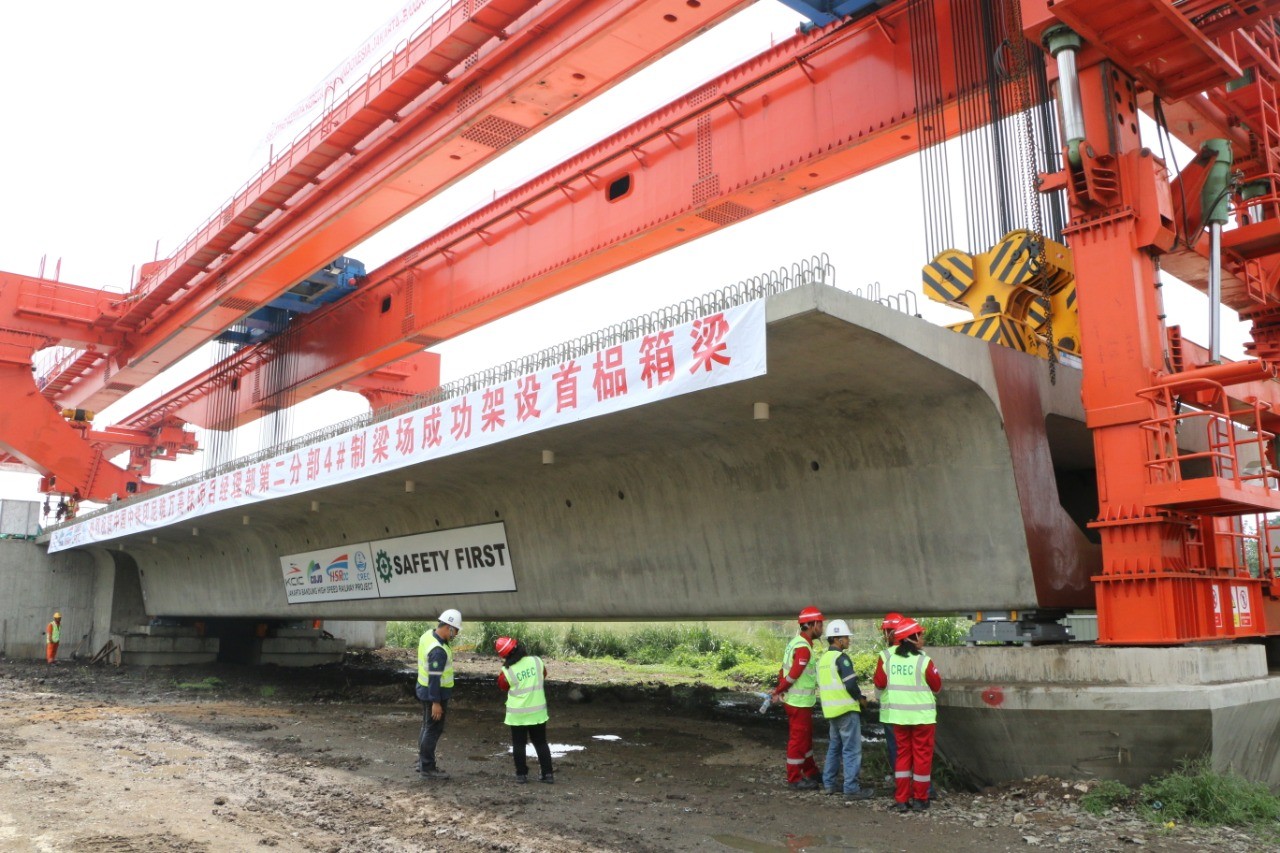The Transportation Ministry of Indonesia has revealed that the Jakarta-Bandung high-speed railway project is set to continue, and is expected to be completed as planned in December 2021 after it was momentarily paused for two weeks. Adita Irawati the Transportation Ministry spokesperson said that PT Kereta Cepat Indonesia China (KCIC) was still committed to finishing the project by the target that had been set.
According to the Transportation Ministry spokesperson, until now, the target has not been reviewed. However, in the midst of the global pandemic, the Transportation Ministry and KCI might review the target that has been set. Adita said that implementation of the project is being carried out by Chinese nationals. However, she admitted that there were several workers from China that had not returned as flights from and to China were banned; hence, construction can continue by utilising the country’s local workforce.
Also Read: Construction of the world’s largest span suspension bridge in China complete
Jakarta-Bandung high-speed railway project
The US $6bn Jakarta-Bandung high-speed railway project linking the capital Jakarta with textile hub Bandung about 140km away is expected to slash travel time from more than three hours by train to just about 40 minutes. However, aside from the current pandemic, there have been other issues facing the project such as mismanagement among the overseers of the project. But after the State-owned Enterprises Minister Rini Soemarno put “more competent” people at the helm of the joint project with China, he is confident that it has been resolved.
Other concerns that have been voiced by the chairman of the Indonesia Investment Coordinating Board, which oversees foreign direct investment, include: the price tag of the project, what the payback is going to be, and how long it will take the project to make its money back. The business case for the rail currently rests on some “very heroic assumptions”, including the volume of demand for tickets – priced at about US $19 for a one-way trip.
